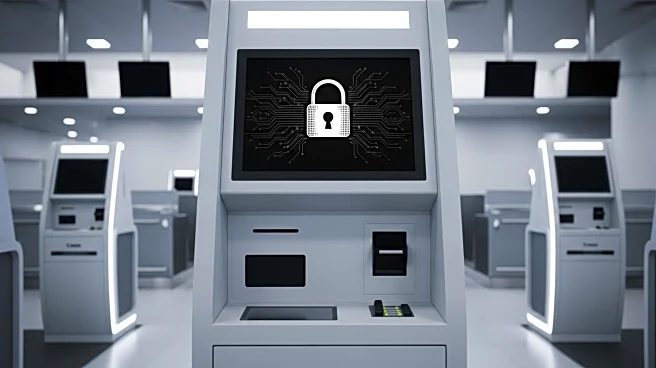What is the story about?
What's Happening?
On September 19, 2025, Collins Aerospace's MUSE platform was compromised by a ransomware attack, affecting major European airports such as London Heathrow, Brussels, and Berlin. The EU Agency for Cybersecurity confirmed the attack involved HardBit ransomware, which ties ransom demands to victims' insurance limits. The incident led to significant travel disruptions, including flight cancellations and reduced capacity at Brussels airport. The attack exposed vulnerabilities in the aviation sector's reliance on digital systems, highlighting the need for improved cyber resilience.
Why It's Important?
The ransomware attack on Collins Aerospace's MUSE platform underscores the critical need for enhanced cybersecurity measures in the aviation industry. As airports and airlines increasingly rely on digital systems for operations, the potential for widespread disruption from cyberattacks grows. This incident serves as a wake-up call for the sector to reassess its cybersecurity strategies and resilience against such threats. The attack also coincides with the upcoming implementation of the EU's NIS2 directive, which mandates stronger risk management and reporting for critical infrastructure, potentially influencing future regulatory approaches.
What's Next?
In response to the attack, Collins Aerospace and its parent company, RTX Corporation, are working to rebuild affected systems. The incident may prompt airports and airlines to invest in more robust cybersecurity measures and contingency plans to mitigate future risks. Additionally, the arrest of a suspect in connection with the attack could provide insights into the methods used, aiding in the development of more effective defenses. The aviation sector may also face increased scrutiny and pressure to comply with the EU's NIS2 directive, which aims to enhance cybersecurity across critical infrastructure.















